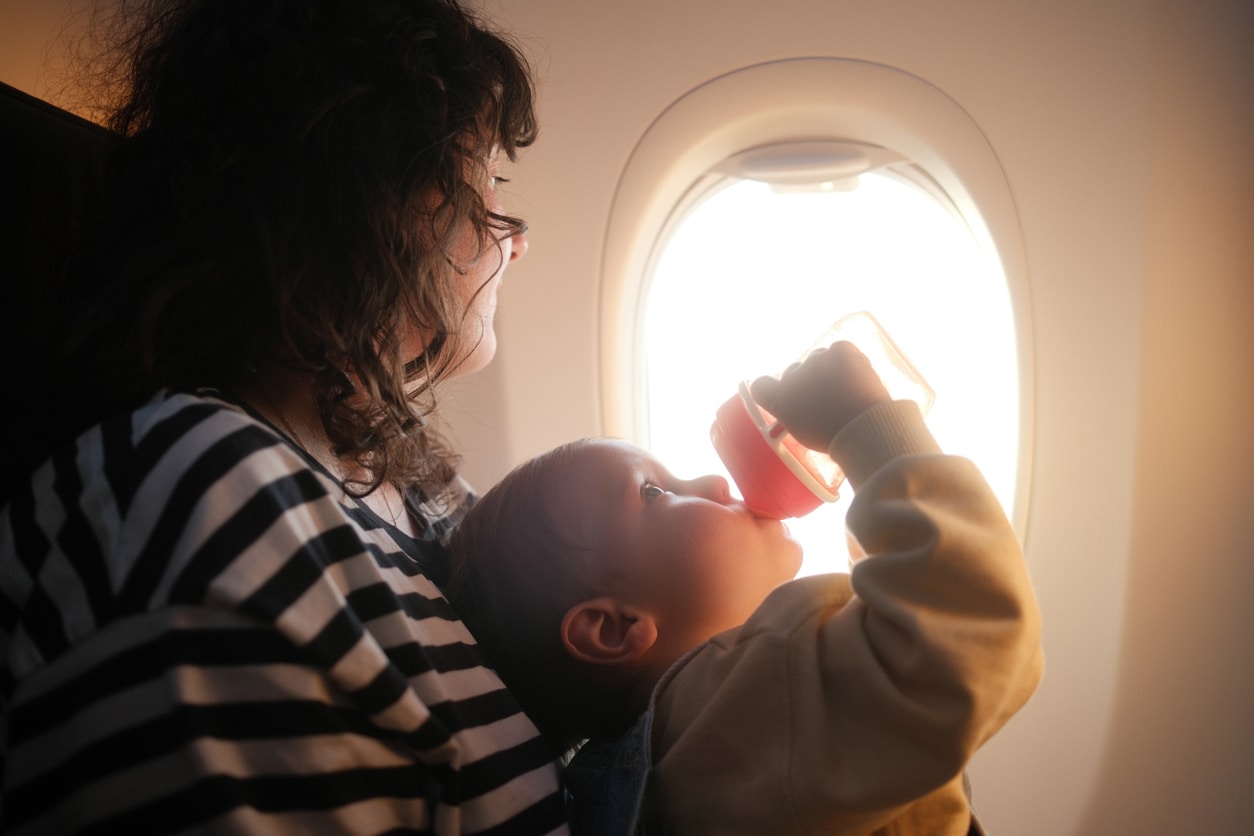Traveling with an infant can be a challenge, and when you add ear pain caused by air pressure changes, it can make flying even more challenging.
Many adults even experience discomfort in their ears when flying, but can ease it by often swallowing, yawning or chewing gum. This may leave you wondering how to assist an infant who can’t use those tricks.
Fortunately, there are ways to make the journey easier. It’s helpful to understand what causes airplane ear to best know how to help your little one.
About Airplane Ear

Airplane ear, also known as ear barotrauma, occurs when there’s an imbalance between the pressure inside the middle ear and the cabin air pressure. This usually happens during takeoff and landing, when altitude changes rapidly. Because infants’ ear structures are still developing, they are especially sensitive to these shifts. This sensation can be quite uncomfortable for them.
Easing Your Baby’s Ear Pressure During Flights
When airplane ear strikes, it can cause symptoms such as ear pain, a sense of fullness, muffled hearing and pressure in one or both ears. Fortunately, there are simple ways to help relieve your baby’s symptoms by encouraging swallowing, which helps equalize ear pressure.
Helpful strategies include:
- Feeding during takeoff and landing: Nursing or bottle-feeding can encourage swallowing, which relieves inner ear pressure.
- Offering a pacifier: Sucking motions are effective in balancing ear pressure.
- Keeping your baby upright: Holding your infant upright during takeoff and landing can assist in relieving pressure buildup.
- Providing comfort: A soothing, relaxed environment can help your baby settle and feel more at ease if discomfort arises.
Getting Ready Before You Fly
Planning can make a big difference when it comes to preventing airplane ear discomfort. Preparing before you board your next flight out of Charlotte Douglas International Airport or any other airport can help you respond quickly if discomfort occurs.
Preparation tips include:
- Plan flights around nap times: A sleepy baby may be more willing to suck on a bottle or pacifier naturally during these times.
- Keep essentials accessible: Ensure bottles, pacifiers and comfort items are within easy reach so you can respond promptly during takeoff and landing.
- Consult your pediatrician if necessary: If your child is dealing with congestion, a cold or an ear infection, talk to your doctor before flying. They can recommend safe treatment options or suggest whether it’s better to postpone your trip.
Flying with a baby doesn’t have to be a stressful experience. By understanding airplane ear and taking proactive steps, you can make air travel more comfortable for your infant.
For more information about protecting your family’s hearing health, contact Blue Ridge ENT to schedule an appointment today.